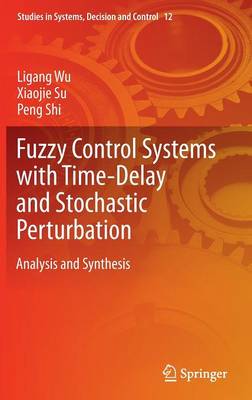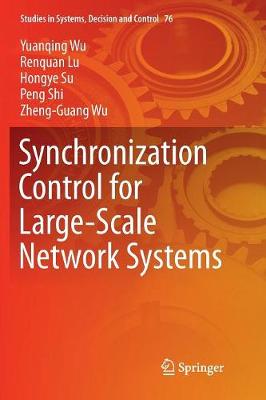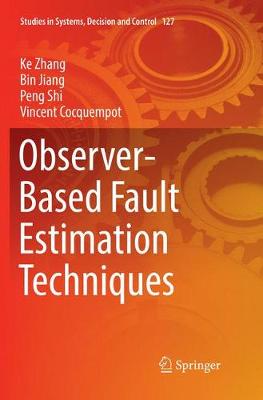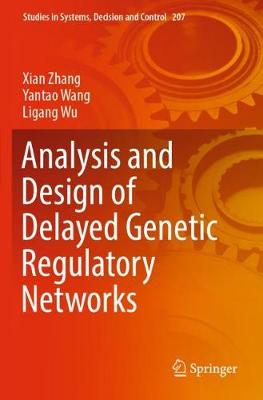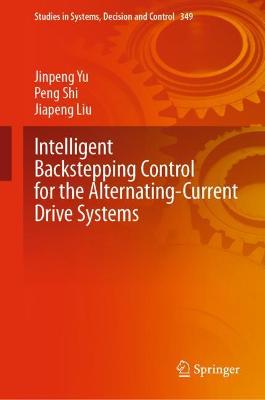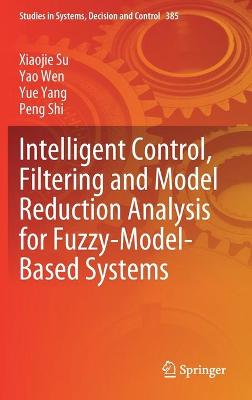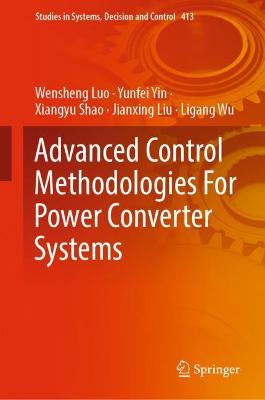Studies in Systems, Decision and Control
7 primary works
Book 12
Fuzzy Control Systems with Time-Delay and Stochastic Perturbation
by Ligang Wu, Xiaojie Su, and Peng Shi
This book presents up-to-date research developments and novel methodologies on fuzzy control systems. It presents solutions to a series of problems with new approaches for the analysis and synthesis of fuzzy time-delay systems and fuzzy stochastic systems, including stability analysis and stabilization, dynamic output feedback control, robust filter design, and model approximation. A set of newly developed techniques such as fuzzy Lyapunov function approach, delay-partitioning, reciprocally convex, cone complementary linearization approach are presented. Fuzzy Control Systems with Time-Delay and Stochastic Perturbation: Analysis and Synthesis is a comprehensive reference for researcher and practitioners working in control engineering, system sciences and applied mathematics, and is also a useful source of information for senior undergraduates and graduates in these areas. The readers will benefit from some new concepts, new models and new methodologies with practical significance in control engineering and signal processing.
Book 76
Synchronization Control for Large-Scale Network Systems
by Yuanqing Wu, Renquan Lu, Hongye Su, Peng Shi, and Zheng-Guang Wu
This book provides recent advances in analysis and synthesis of Large-scale network systems (LSNSs) with sampled-data communication and non-identical nodes.
In its first chapter of the book presents an introduction to Synchronization of LSNSs and Algebraic Graph Theory as well as an overview of recent developments of LSNSs with sampled data control or output regulation control. The main text of the book is organized into two main parts - Part I: LSNSs with sampled-data communication and Part II: LSNSs with non-identical nodes. This monograph provides up-to-date advances and some recent developments in the analysis and synthesis issues for LSNSs with sampled-data communication and non-identical nodes. It describes the constructions of the adaptive reference generators in the first stage and the robust regulators in the second stage. Examples are presented to show the effectiveness of the proposed design techniques.
Book 127
Observer-Based Fault Estimation Techniques
by Ke Zhang, Bin Jiang, Peng Shi, and Vincent Cocquempot
This book investigates observer-fault estimation techniques in detail, while also highlighting recent research and findings regarding fault estimation. Many practical control systems are subject to possible malfunctions, which may cause significant performance loss or even system instability. To improve the reliability, performance and safety of dynamical systems, fault diagnosis techniques are now receiving considerable attention, both in research and applications, and have been the subject of intensive investigations. Fault detection - the essential first step in fault diagnosis - is a binary decision-making process used to determine whether or not a fault has occurred. In turn, fault isolation is used to identify the location of the faulty component, while fault estimation is used to identify the size of the fault online. Compared with the problems involved in fault detection and isolation, fault estimation is considerably more challenging.
Book 207
Analysis and Design of Delayed Genetic Regulatory Networks
by Xian Zhang, Yantao Wang, and Ligang Wu
This book offers an essential introduction to the latest advances in delayed genetic regulatory networks (GRNs) and presents cutting-edge work on the analysis and design of delayed GRNs in which the system parameters are subject to uncertain, stochastic and/or parameter-varying changes. Specifically, the types examined include delayed switching GRNs, delayed stochastic GRNs, delayed reaction-diffusion GRNs, delayed discrete-time GRNs, etc. In addition, the solvability of stability analysis, control and estimation problems involving delayed GRNs are addressed in terms of linear matrix inequality or M-matrix tests.
The book offers a comprehensive reference guide for researchers and practitioners working in system sciences and applied mathematics, and a valuable source of information for senior undergraduates and graduates in these areas. Further, it addresses a gap in the literature by providing a unified and concise framework for the analysis and design of delayed GRNs.
Book 349
Intelligent Backstepping Control for the Alternating-Current Drive Systems
by Jinpeng Yu, Peng Shi, and Jiapeng Liu
This book focuses on the intelligent control design for both the induction motor (IM) and the permanent magnet synchronous motor (PMSM). Compared with traditional control schemes, such as the field-oriented control (FOC) and the direct torque control (DTC), the intelligent controllers designed in this book could overcome the influence of parameter uncertainty and load torque disturbance. This book is a research monograph, which provides valuable reference material for researchers who wish to explore the area of AC motor. In addition, the main contents of the book are also suitable for a one-semester graduate course.
Book 385
Intelligent Control, Filtering and Model Reduction Analysis for Fuzzy-Model-Based Systems
by Xiaojie Su, Yao Wen, Yue Yang, and Peng Shi
Book 413
